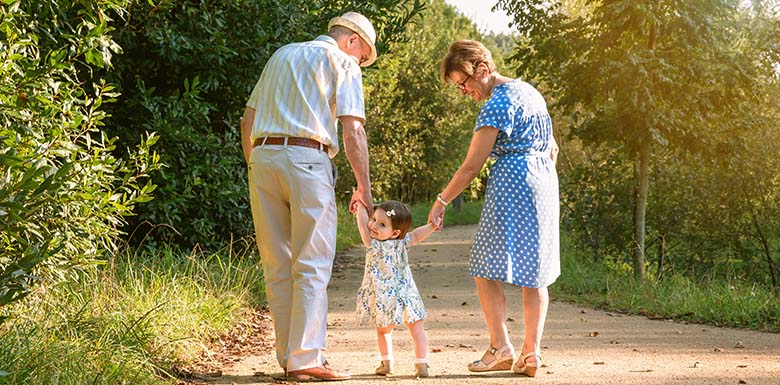How do I Terminate Kinship Care?
Published: Oct 05, 2022 in Child Custody
Written by Anthony Piccirilli
It can be devastating when families are separated, even if it’s done in the children’s best interest. Pennsylvania uses a program to keep children in their family’s custody and has been working to bring them back into their parent’s custody when possible.
Knowing about kinship care can help you learn how to reunite with your children.
What is Kinship Care?
In Pennsylvania, the Children, Youth and Families, also known as the Department of Children, Youth and Family, Children, Youth and Family, or the Department of Children, Youth and Family Services, oversees the relationships between children and their parents within a family unit. The CYF will conduct investigations into child abuse allegations or dangerous homelives.
A household may be deemed dangerous to a child’s upbringing. If the environment is too unhealthy for children, the kids might be removed from the home and placed into another’s care.
If the children can be placed in the home of a capable friend or relative, they’ll enter “kinship care.” This functions similarly to foster care. And like children taken into foster care, it is possible to reunite with them.
What Requirements must be met to End Kinship Care?
As people’s situations change over time, agencies like CYF acknowledge that circumstances may have changed. A home environment might be safe enough for children to leave foster or kinship care to go home with their parents.
Although each case is unique, parents must often meet requirements for the court to approve reuniting children from kinship care.
For instance, any adult found to have a habitual drinking or drug-use habit may need to complete a treatment program before children are admitted back to the home. The parents may also need to find appropriate housing or agree to counseling.
How Do I bring my Children Home?
If you can ensure that your children will be safe in your home after they’ve been removed from it, you can work with the CYF to start the reunification process. Both the court and the agency will need to ensure you can keep your children safe, you can meet their needs, and you’re prepared to meet their needs.
You may work with a CYF agent to create a “reunification plan,” which will act as a roadmap to bringing home your children.
Developing a Reunification Plan
This plan will outline expectations and people you can work with and rely upon to bring home your children after they’ve been removed. It will balance your needs and the expectations the court has laid out for you to complete and obey before your children are brought back.
The reunification plan is not just a checklist to try and rush through. It will serve as a roadmap as you improve your family environment. You can work with a family law attorney and a representative of the CYF to ensure you’re improving.
Other FAQs about Ending Kinship Care?
What Can I do to Improve My Odds of Bringing Home My Kids?
Although you might be working to improve yourself, you might feel like your kids will be stuck in a relative’s care forever. However, you must remember to remain positive, work to bond with them while you visit, and let them express their feelings.
It might be tough to be stuck on a visitation schedule, but it’s a process to reunite with your children.
Could My Kids Get Adopted?
In some cases, it is possible children removed from their parents’ care into kinship care might be adopted. If the parental rights have ended, a child might be adopted.
Under the Adoption and Safe Families Act, children might be adopted if they’re in foster or kinship care for 15 of the last 22 months. There are exceptions, but because of concurrent planning, or creating a stable environment for children to grow from youth to adulthood, they may be eligible for adoption. However, reunification is one of the CYF’s top goals.
Is it Possible to “Track” how Soon Reunification Will Happen?
There are goalposts to indicate when reunification may happen. For instance, if your visits have adjusted from being supervised to unsupervised, the court may see your progress and may be approaching ending kinship care. However, there’s no set way to track reunification: keep working with your team and your attorney to ensure as smooth a transition back to one household as possible.
If I’ve been Reunited with My Children, Can They Be Placed Back in Kinship Care Later?
As stated, each case is unique. Life is very fluid, but there have been instances of children returning home before it’s found they need to be removed from that environment. Some parents find it difficult to remain supportive or their treatment plan is hard to maintain. However, some reunification plans work on this possibility by appointing kinship care placements should there be a change.
Call Our Pittsburgh Domestic Attorneys for Help Today
Whether your children have already been placed in kinship care or you’re preparing for their departure, having a guide through the ordeal can ease your worries. A family law attorney with experience in Pennsylvania’s justice system and working with state agencies can help you develop a plan for reuniting your family.
The Pittsburgh Divorce & Family Law, LLC team is ready to hear your story and work with you to create a path forward. Attorney Anthony Piccirilli has experience working with the CYF and can help you negotiate for the most desired outcome.
Contact his office today to schedule a consultation by calling (412) 471-5100 or with the secure contact form.
